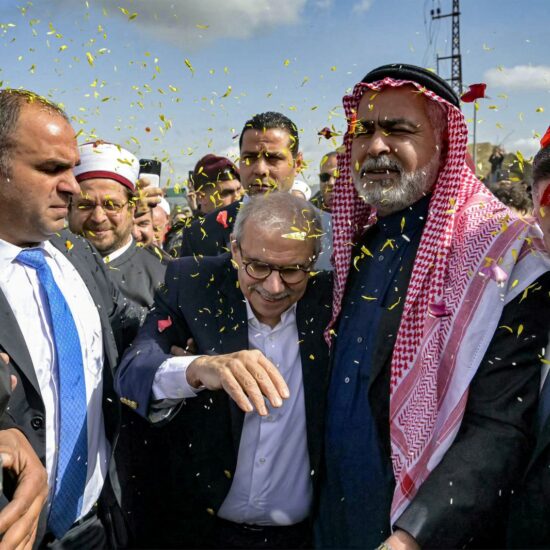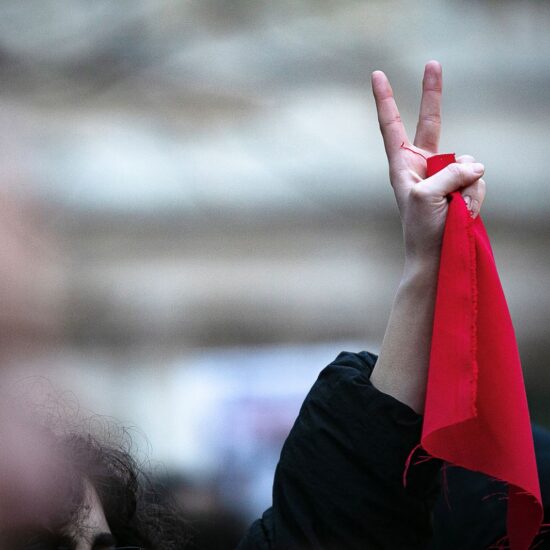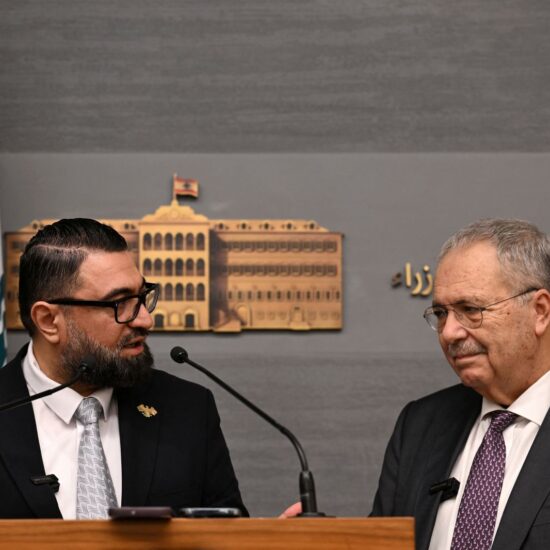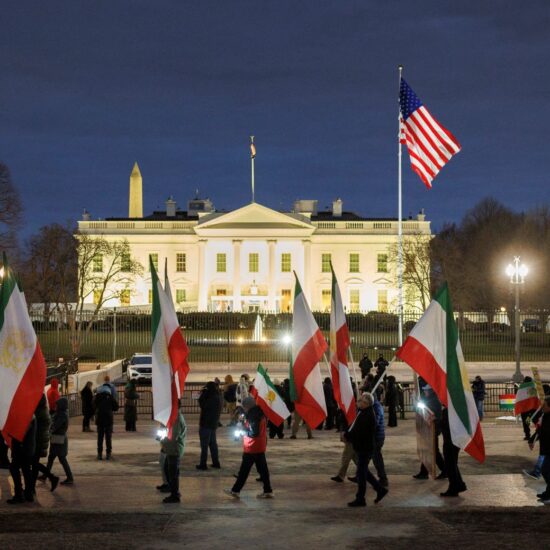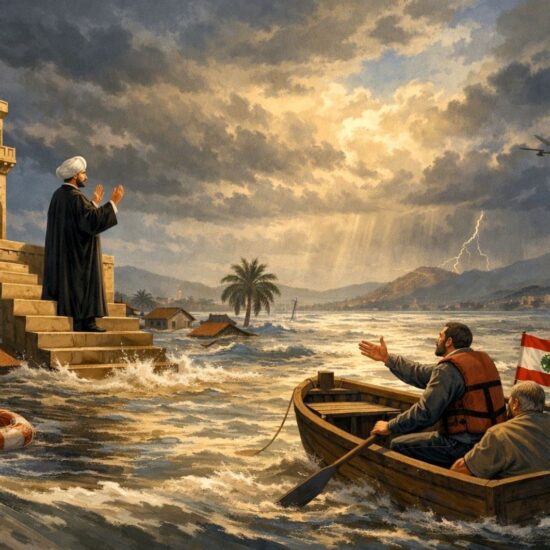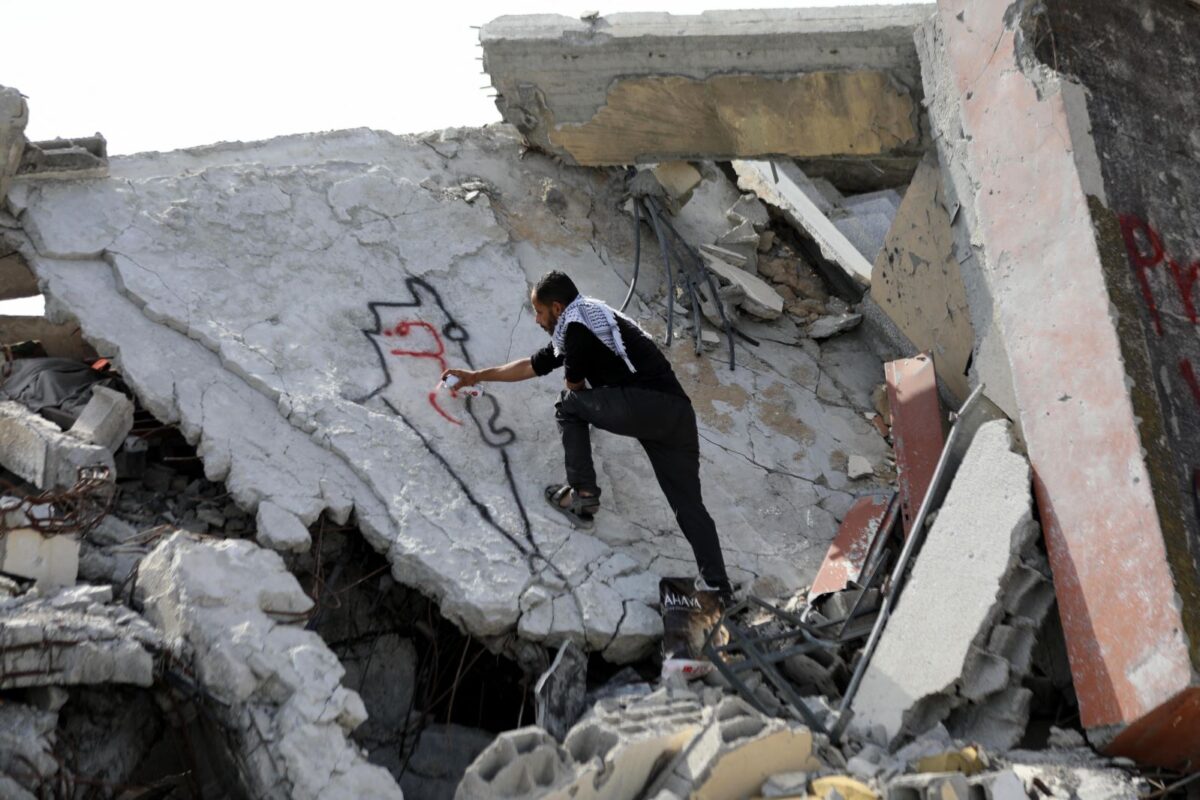
In open conversation with ‘The Luxury of Death’, by Mariam Mohammed Al Khateeb
In the early hours of Sunday, January 19, on a sunny morning, in Gaza, it happened: the truce began, the shelling ceased, and instead of the cries of those who for the umpteenth time flee, those of joy of those who can say, even if temporarily – it is over. After 470 days of genocide, 100,000 tons of explosives dropped, two million Palestinians displaced, 46,700 official dead; 2,100 families exterminated, and another 5,000 of which only one member survived; 18,000 child martyrs, 12,300 women, 205 journalists; 44 deaths from starvation, 8 from cold; 111,000 injured hospitalized, 34 hospitals burnt down, 80 health centers put out of service, another 162 health facilities hit, and 136 ambulances; 4,500 cases of amputation, 19 cemeteries destroyed. An incalculable number of missing people, buried without a coffin – without a shroud – under indefinable rubble. Once again, for a while, it is over.
There are many ways of recounting what has been, of repeating it, of juxtaposing glimpses of reality that can no longer be united nor stitched together, but which we have witnessed, through the constant recounting of Gaza’s journalists, Gaza’s eyes, its youth, who had warned us against calling them heroes, so as not to abstract, through myth, the real, already historical pain of entire generations born exiled, occupied, refugees. But having, an entire family, ceased to mourn a single hand – all that was allowed to remain of the lost son – it has become common for a son to mourn, without tears, his entire family: and being not even eight years old.
Whereas now, albeit temporarily, yet not naively, one can, under piles of rubble and stones, distribute the roses, tell them – the stones and the roses and the rubble – that he has returned, that they have been a legend. And without abstracting, without mythologizing, the human joy of being alive, the fear of digging up, uncovering, washing, wrapping in a white sheet, deluding oneself that some plot of earth has remained virgin, digging, storing, and finally weeping, finally praying.
“This is now a strange scene; to be at a funeral and see a shroud, inside which is a whole body with two hands, ten fingers, two feet, and a head. Nowadays, we Gazans are lucky if we even get to have a funeral, to bury an intact body, or to have our family and friends there to say goodbye and cry over us.” These are the words, published on June 10, 2024, of Mariam Mohammed Al Khateeb – dentistry student, poet, oud player, translator, community activist – displaced from Gaza, through Gaza, across Rafah, towards Egypt. “I am currently in Egypt – I made it out alive – but I am miserable,” she wrote back then. “I feel as if I am marching towards an abyss. I can hear the heavy, pounding feet of others as we march together as one toward our demise.”
What voices like hers have taught us, with difficulty, to imagine – to understand, outside Gaza, it is not possible – is that despite the destruction, and perpetual death – in Gaza one dies again and again, corpses mauled by dogs, cemeteries buried by bombs – it is lucky the one who stays. Mariam, a survivor, unlucky in Egypt, unable to enjoy ‘the luxury of death’ – only one, of celebrated funerals, of bodies buried whole. “I was not lucky enough to walk in the funerals of a thousand martyrs in Gaza, but I saw their bodies splayed on the ground, under the rubble, and burnt to ash.”
She tells of an image seared in her mind – it is an awful sight to have witnessed -, that of a dead couple’s hands clenched together, “gripping each other as though being killed would be bearable if they squeezed hard enough.” On the top of that rubble, people danced. Flied. Walked.
The endless repetition of images like this has far surpassed any past horror, even in painful Palestinian history: even that of the siege of the camp of Yarmouk, in the outskirts of Damascus, by the forces of the Assad regime, where, from August to December 2013, nothing went in and no one came out. Back then, people began eating weeds and boiling cacti for sustenance; an imam issued a fatwa allowing people to eat dogs and cats to prevent starvation, while malnutrition, dehydration and treatable diseases killed more than a hundred people. With few supplies left, the price of food skyrocketed, to the point where a kilo of rice arrived to cost 70 dollars in December 2013.
Similar horrors, comparable in segregation – though not in duration. But if in the 2021 documentary ‘Little Palestine’, Syrian-Palestinian filmmaker Abdallah Al-Khatib described the survival ritual of walking under siege in Yarmouk as “the ultimate weapon to defend the details of a place from loss” or “the ultimate practice of freedom;” as he showed people searching incessantly for food among the weeds secretly growing in the corners of the pavements, swallowing only water with spices, the leftovers from a jar of tahini or the not-yet-blooming sprouts with which to make salads or soups; and he recited, his voice in the background, “under siege, walk as much as you can, but don’t step on anything you might have to eat one day, walk on air” – Gaza taught that on air one must learn to walk not to save food but the dead. The pieces of death.
“This genocide has turned us all into orphans,” writes Mariam, eleven years after Yarmouk, to which a generation of exiled Syrians now returns as one returns to an uninhabitable mass of ruins: to observe, to remember, to try to put the pieces together, to mourn the dead and still search for the bodies of the disappeared. Yet, one would be inclined to calculate time in reverse: as if the siege of Yarmouk had taken place eleven years before Gaza. For Mariam, “it has turned the sky into a city of lost children and missing people, unable to be found, unable to be grieved, unable to be whole, living bodies again.” And again: “After a missile strike, everyone searches in the debris to put their loved ones back together. Mothers search for their children’s heads to match with their bodies. To be a good mother in the rest of the world is to feed your children good food and keep them warm, but to be a good mother in Gaza is to bury your children whole.” And this – in history, not just Palestinian history – is unprecedented. “Even two months later,” the young writer continues, “I am still searching for the remains of my friend Israa’s body. I regularly ask for updates from my family to see if they have found more parts of her yet.”
Death, she says, “plays a puzzle game with us; the missile shatters your small body; you are now in pieces; those who know you were killed must now try to piece you back together into the image you once were.” And with newborns – I allow myself to add – the image you could have been. Because if no one dies complete, in Gaza, no one can be born as such, either. Only if you were killed at the beginning of the genocide, you could have been buried properly: but after only a couple of months there was no more official cemetery. Even the mass graveyards have been bulldozed by Israeli soldiers: “it’s like they want to kill us again and again, to make sure we are completely dead.”
Let it be a tale
Mariam Al Khateeb wrote ‘The Luxury of Death’ for the Palestinian collective We Are Not Numbers, an initiative conceived in 2014 under the key inspiration’s source and guidance of scholar Refaat Alareer, Professor of comparative literature and creative writing at the Islamic University of Gaza, and author of the renowned verses: “If I must die, / you must live / to tell my story / to sell my things / to buy a piece of cloth / and some strings, / (make it white with a long tail) / so that a child, somewhere in Gaza / while looking heaven in the eye / awaiting his dad who left in a blaze — / and bid no one farewell / not even to his flesh / not even to himself — / sees the kite, my kite you made, flying up above / and thinks for a moment an angel is there / bringing back love / If I must die / let it bring hope / let it be a tale.” He was killed by Israel on December 6, 2023 – his verses forever engraved on hundreds of kites, able to make it come true: his death, to become an eternal tale.
Yet in the eyes of Mariam and her friend Mais, displaced in a tent in Rafah – not yet miserable, though, as still in physical touch with the land of Palestine – the same incipit echoed terribly, in a macabre figuration of ways to die. “At least if I must die,” writes Mariam unconsciously repeating the verses of her mentor, “I don’t want my body to be eaten by animals, I don’t want to become dog food. I’d rather dissolve into the ground and disappear. But maybe I don’t want to become fertilizer either.”
“I told Mais that I want to die in a poetic way. I want the occupation to blow me up like the Palestinian writer and politician, Ghassan Kanafani, and for history to remember me. But as I sat with Mais in the tent, I thought, I will not get to choose how I die, and the Israeli Occupation Forces will not plan their assassination of me. Rather, they will kill me in a massacre along with others, and my body will rot together with theirs. No one will be able to cry for me over my body.” And she continues, wondering: if you die and no one finds your body, will anyone know that you have died? Did you even exist if you have no body to show as evidence of your life?
To date, we do not know whether Mais is alive, if she has both arms, and in case she is dead – if she died in the luxury of wholeness. Whether there is more than one survivor among her family members to share the grief of remembering with. In which category to include them. Whether Mariam has returned to Gaza, whether she has found Israa’s missing remains. If she still feels miserable. If she still dreams, in a tent, in which poetic way, in which fable, she can die. Meanwhile, she writes. Like many young people in Gaza, Mariam was dedicating her time to the study of English to improve her language skills: but the deafness of the English-speaking world to the genocide has shown that communication does not take place through language, and that one can also be blind to the avalanche of images streamed live.
Last July, Mariam’s poems, together with those of Haidar al-Ghazali, found a new “persistent and insistent” space on the Avery Review’s ongoing editorial project Gaza Pages, of which they marked the very first installments: and in Arabic, their mother tongue. So that translation becomes the challenge of genuine transmission – where poetry breathes agency, clarity, and defiance, compared to the staticity of prose. When events increasingly become so cruel and violent that they cannot be narrated with prose; when life becomes so unspeakable – poems behave like testimony, like breaths that proclaim that Gaza, the city and its people, cannot and will not be erased from the face of the planet.
The question of how to translate exhaustion was raised by Khaled Rajeh on the difficulty of returning, into English, the politics-poetics of Palestinian Najwan Darwish, among the most relevant on the contemporary literary scene. Exhausted on the Cross, from 2018, is the title of one of his latest collections. And it raises, cruelly, verses like these: “The ones hanging / are tired / So bring us down / and give us some rest.” Those nameless ones hang from a crucifix, suspended indefinitely, stuck somewhere between life and a death that never comes. They plead, they exclaim their weariness, they beg to be put down and receive no answer. For decades – unanswered. And we, deaf, on the other side of the ordeal have recounted them heroic, resilient, sometimes defenseless victims, yet always armed with stones with which to answer the bullets. To rockets. To bombs. Always activists and always passive. Dignified. Titans. Najwan Darwish has told his story, for the first time, as an exhausted Palestinian. From the time of the Prophet Mohammad to the massacres of Sabra and Shatila, to the last boy killed by the ‘collateral effect’ of the conflict. Exhausted until Nablus and Jenin, gagged for years and punished for waking up, for singing.
Back then, the dispossession of the Palestinians had already extended to their poetry – but the function of their poetry, to amnesia. In Embrace, Najwan Dawrish writes: “Ghosts try to forget / and when they meet in groups / they meet to forget / they drink tea / and recite poems to each other / to forget.”
What has perhaps changed, what these fifteen months of genocide have shaken, in contemporary Palestinian poetics, is the renewed mission to remember, to imprint, in verse, a pain, an existence unaccountable in prose. The will to protect them, as if they were a part of their land – as a part of the self, non-amputable. Unforgettable. “I hid my first poem at home, / Until my letters turned to rubble, / And debris wrecked my words until the poem bled,” are the verses of Mariam, the open question أين سأخبئ قصيدتي؟, ‘Where will I hide my poem?’ – translated from Arabic to English by Fawwaz Abughazaleh, Mahdi Sabbagh, Meriam Soltan, and Jehan Bseis: a whole team, for a handful of lines.
“I thought my poem eloquent enough to protect my home, / Just this one last time, / But both my home and my poem died. / I hid my poem in my tent, / She suffered from the heat, and from mourning the dead. / I cooled the letters down and hid my poem in the eyes of children. / But rockets found her.”
Thus personified, Mariam’s poetry is born, dies, feeds, hungers, cries, can be killed – and its death become a tale, a terrible one. “My poem was made of white blood and of / Flowers I collected from these streets / Burdened with bereavement. / My poem was made of words / Overlooking graveyards, / Words overlooking death. / My poem was a bag holding my memories and this dream of death.” And from person, return object, return whimper. “My poem was a girl with braids, / Who became a girl carrying blood-soaked bread. / My poem was an old woman with her head held high, / Who became a whimper.”
That moaning persists. But it also embraces a people united by the siege: who have won, because their poetry has withstood the siege; as they continue to find meaning in the details they feared might disappear; they won, because they might have had to survive death in an even greater siege – where people die of indigestion and servility, not hunger and dignity. Gaza won because its siege ended before its people ended: and poetry was saved. Now that the counting of the new dead has ceased, and the exhumation of what was begins, now is the time to take up these verses, to look for the pieces of syllables scattered across displacement – put them back together, like a mother to her son, build a beautiful grave for them, and learn them by heart, and remember them forever.



